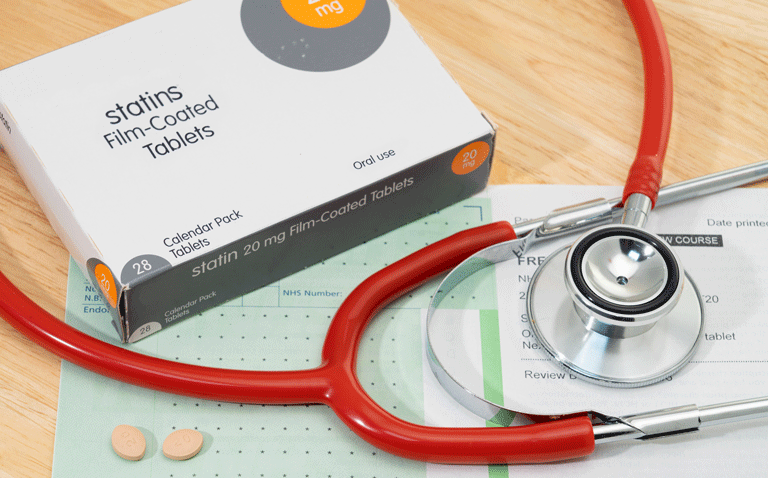Statin induced muscle symptoms may be helped by vitamin D but a recent trial found that supplementing did not affect the discontinuation rate
Supplementing with vitamin D did not reduce statin induced muscle aches and pains or discontinuation rates compared to placebo according to the results of a randomised trial by US researchers.
Statins therapy is a recognised treatment for reducing the risk of all-cause and cardiovascular mortality and cardiovascular events and these benefits are even greater among those with a higher baseline risk. Nevertheless, it has become widely recognised that statin induced muscular symptoms is a common real-world problem, even with average dosage statin therapy and which has a large impact on patients’ life. Moreover, these effects can lead to discontinuation and therefore reducing the cardiovascular disease benefit. In a 2015 meta-analysis, it was shown that low vitamin D levels were associated with myalgia in patients on statin therapy. In fact, a prospective study found in many cases, statin intolerance due to myalgia, myositis or myopathy in patients with low serum vitamin D levels, could be resolved by supplementing with the vitamin. However, to date, no randomised, placebo-controlled trials have addressed the value of supplementing with vitamin D on either statin induced muscular symptoms or drug discontinuation rates.
The current study was part of the VITAL trial that explored the value of both vitamin D and omega-3 fatty acids on cardiovascular and cancer outcomes. Researchers identified a sub cohort within VITAL prescribed statin therapy and who had been randomised to vitamin D or placebo. In both cohorts, baseline vitamin D levels had been recorded. The primary endpoint of the study was the development of muscle symptoms while taking a statin and the main secondary endpoint was statin discontinuation.
Statin induced muscle symptoms and vitamin D
Statins were initiated in 1033 participants with a mean age of 66.8 years (49% female) and 1050 individuals were assigned to placebo and followed for a mean of 4.8 years.
During follow-up, statin induced muscle symptoms were reported by 31% of those assigned to vitamin D and placebo, giving an adjusted odds ratio, OR of 0.97 (95% CI 0.80 – 1.18, p = 0.78).
In addition, the discontinuation rate was 13% in both groups (OR = 1.04, 95% CI 0.80 – 1.35, p = 0.78). When looking at the incidence of statin related muscle symptoms and serum vitamin D levels, a similar proportion of participants in both groups reported muscle problems where levels were either below 20 ng/mL or below 30 ng/mL.
The authors concluded that vitamin D supplementation did not prevent statin associated muscle symptoms or reduce the rate of drug discontinuation irrespective of pre-treatment vitamin D levels.
Citation
Hlatky MA et al. Statin-Associated Muscle Symptoms Among New Statin Users Randomly Assigned to Vitamin D or Placebo. JAMA Cardio 2022










